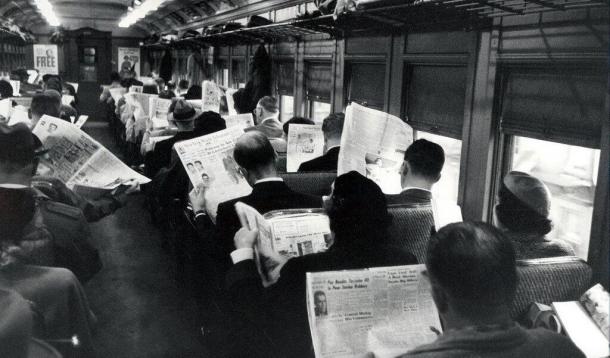
Put down the smartphone. Look up. Engage with the world. It seems every few weeks there’s a new campaign designed to shame us from using our mobile devices. You know, the latest softly lit, emotionally-scored YouTube sensation showing people staring down at their phones while the world goes on around them. While I would never advocate letting any inanimate object monopolize your attention, allow me to make a case for why the mobile devices – supported by the communication networks they run on – are not only awesome, but can actually help you enjoy life even more.
Here’s the thing: the reason mobile devices are so addictive is because they are literally the most useful devices in the history of human civilization. Am I overselling it? Let’s see.
A compendium of all human knowledge: Check.
A global communications device: Check.
An entertainment device with near limitless content: Check.
But as Uncle Ben from Spiderman says, “With great power comes great responsibility.” So how do we balance the sheer awesomeness of connectivity with our need to interact with people in the real world?
Most of the backlash against mobile phones comes from the view that they are preventing people from interacting in public spaces. Whereas, before you had to stare into space or count the ceiling tiles on a subway or in a doctors office, now you can play Candy Crush. But are we really missing those interactions? Today’s mobile devices are the Walkman's of the 80s or the newspapers of the 50s.
My kids have grandparents and cousins in Vancouver and they use “FaceTime” as a verb now. They love to goof around with their cousins over video chat and show off their latest dance moves to their grandparents. This is the kind of connection that just wasn’t possible when I was a kid.
Every day I see pictures of friends and family on Facebook and never do I see anyone’s face buried in a phone. Instead I see silly selfies with kids and videos of special moments. Put a camera the size of a deck of cards into the hands of the ancient Romans and we’d have gladiators taking selfies with lions in our history books. The desire to connect and to be seen is human, the only difference is that we now have ubiquitous mobile networking and devices so small and powerful, they can get lost between the couch cushions.
When I’m out with my family, my iPhone helps me get to where I’m going, take pictures, make reservations, connect with family and share moments. It helps me avoid traffic that slows me down, and lets my family know when I’m coming home. It makes sure I never forget the milk at the grocery store.
The idea that everyone we want to interact with is directly in front of us ignores the reality of our lives. We’re busy and we have people we want to reach out to, everywhere. The etiquette of a smartphone should be no different from a watch or a book. Rude is rude. However, I just don’t buy the idea that people are shut off and disconnected from real humans because of these devices. I have had real conversations and received great advice from people I have never met face-to-face. My kids will grow up with lectures from Harvard professors at their fingertips for free. Our society is no longer at the will of the corporate media to let us know what is going on around the world.
And yes, let’s get the obvious out of the way - sometimes they are a great way to distract kids. That’s controversial in some circles but as far as I’m concerned, as long as screen time of any size it monitored and restricted there is nothing wrong with a little YouTube distraction to make a long wait in a doctor’s office more bearable.
And that’s the real lesson when it comes to mobile devices: context.
So long as you are using your smartphone to connect, learn, entertain or assist in a way that doesn’t ignore the real people around you, I don’t understand all the fuss. There are many real and amazing ways in which these devices actually enhance those interactions and make them better than ever before. However, let’s not pretend like the pre-smartphone era was full of random conversations with strangers and people gleefully staring off into space waiting in line at the bank.
Technology always changes social norms a little bit and that’s ok. The human desire to connect is powerful, and smartphones are giving us more opportunity to do that than ever before.
So what do you think? Are mobile devices corrupting our youth and tearing at the moral fabric of society or are they leading us towards a hive brain utopia? Or perhaps somewhere in the middle?
